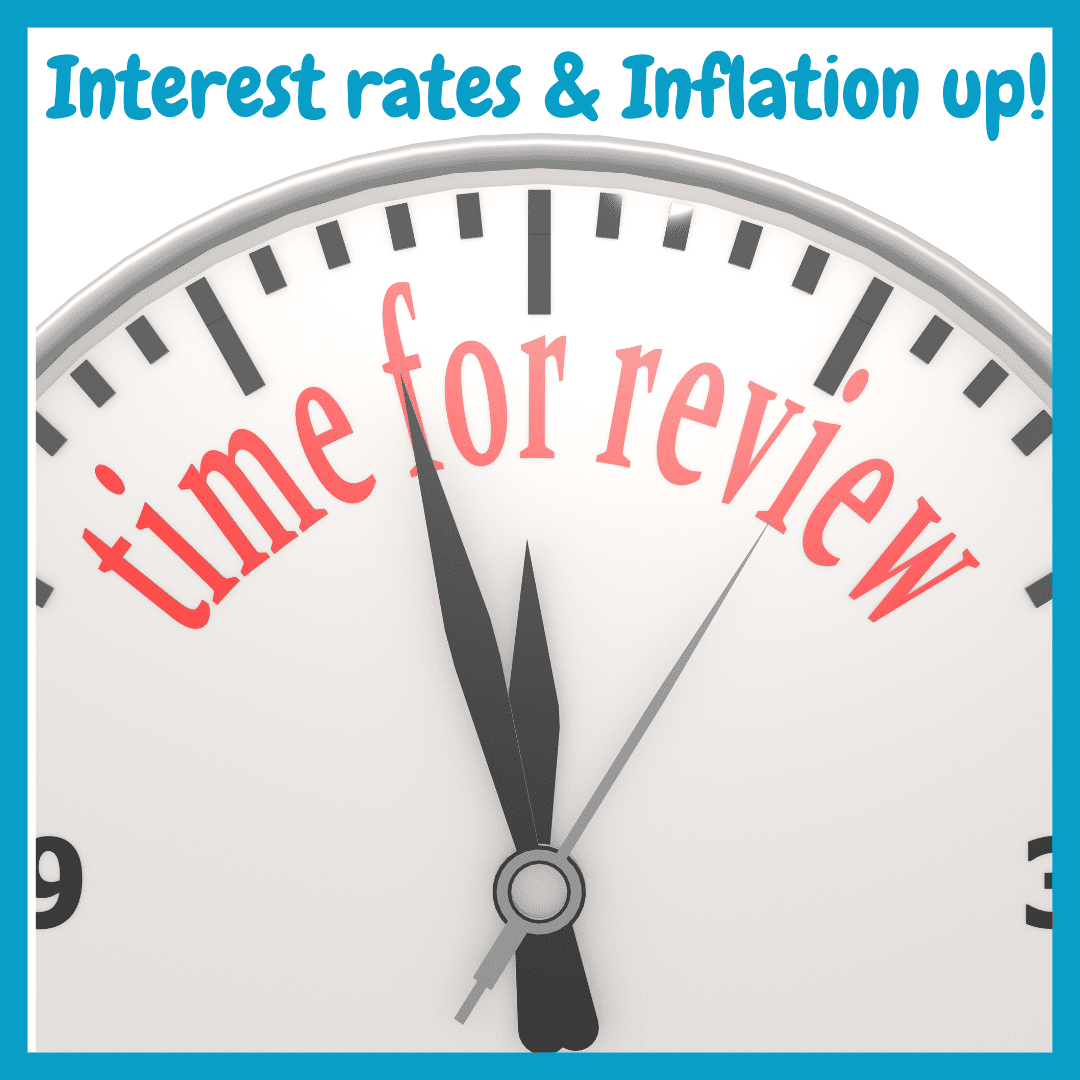
The best time to review your financial circumstances is often when your circumstances change, or you expect them to change.
It is also a good time to review when outside factors influence your financial circumstances, which in turn can change your plans and goals.
Interest rates are up for borrowing, Interest rates for cash savings are still low.
Rising inflation affects your long-term savings and stock market volatility and performance can affect your short-, medium- & long-term plans
It seems all of our energy prices are increasing, so making sure you have your reserve and emergency funds in place is even more important.
Here are 7 key areas that you should include in your review:
Mortgage
A significant number of residential mortgages are currently maturing. According to recent analysis by Yorkshire Building Society, more than £29 billion worth of UK residential mortgages are reaching maturity.
Going from a fixed rate or tracker rate to your lender’s standard variable rate (SVR) can be quite an increase in your monthly payments, so ensuring you retain a competitive interest rate is vital.
You may now find with your mortgage balance reduced and your property value increased, that your actual loan to value (LTV) is lower, so this gives you access to better product rates.
This could be good news for homeowners who found themselves wanting to improve their home after spending so much time there in the last 2 years.
Raising additional funds as part of the mortgage to convert garages or landscape gardens or helping children with mortgage deposits, may now be possible without much impact on the monthly mortgage payments they are used to paying.
Pensions & Retirement Planning
It is not the actual pension plan that will determine what you get back at retirement, but what goes on inside the plan and where your hard-earned money is invested.
Review your funds, the cost and charges, the risk of those funds and if they are in line with your attitude to risk and match your expectations.
If you are a 40% taxpayer, make sure you are getting that extra 20% relief, which must be claimed via your self assessment.
If you are born after April 1971, access will now be 57 years old at the earliest and even that is under review, so make sure your plans take this into account.
Have your Retirement plans changed due to the pandemic
Investment & Savings Plans
Examine the investments, as well as the risks and time frames associated with them, and ensure that you are saving tax efficiently by utilising all of your HMRC allowances.
Make sure your plans are set up to mature or be surrendered at the appropriate times, particularly if your circumstances have changed since you started investing.
Check your cash savings interest rates, as deposit bonds generally have better rates than CASH ISAs these days, and making use of your Personal Savings Allowance (PSA) will help.
Taxation
Make sure you have the correct tax code, especially if you have more than one job.
With the big increases in property values, estates have increased in value and more people will now be affected by Inheritance tax.
Ensure you are saving tax efficiently and depending on your attitude to risk, more tax relief can be claimed on higher risk investments such as VCTs (Venture Capital Trusts) and EIS (Enterprise Investment Scheme) schemes.
Insurance
Sadly, there have been many more claims in the last 2 years on both life and business policies.
Ensuring you are paying a competitive premium and the cover is the correct level and covers the areas you want, such as life, critical illness and income protection as well ensuring your property insurance and any business liability insurance is up to date and appropriate.
Wills & Lasting Power of Attorneys
Make sure the appointed executors, trustees, guardians for any children are still suitable and beneficiaries are still who you want them to be.
Make sure that your Attorneys are still able and capable of looking after your affairs when you cannot.
Where there’s no Will, there’s sure to be arguments
Equity Release
With record amounts of equity being released from properties, it is no longer seen as last resort borrowing.
The lenders, products, and schemes available make releasing equity in your property a very modern, cost-effective, and efficient way of releasing money from an asset you already own.
If you have an existing Equity Release loan, checking your current interest rate may reveal that you can move your present product to a new lender with a lower percent rate, which might save you a considerable amount of money in the long run.
Think carefully before securing other debts against your home. You should note that your home may be repossessed if you do not keep up repayments on your mortgage.
